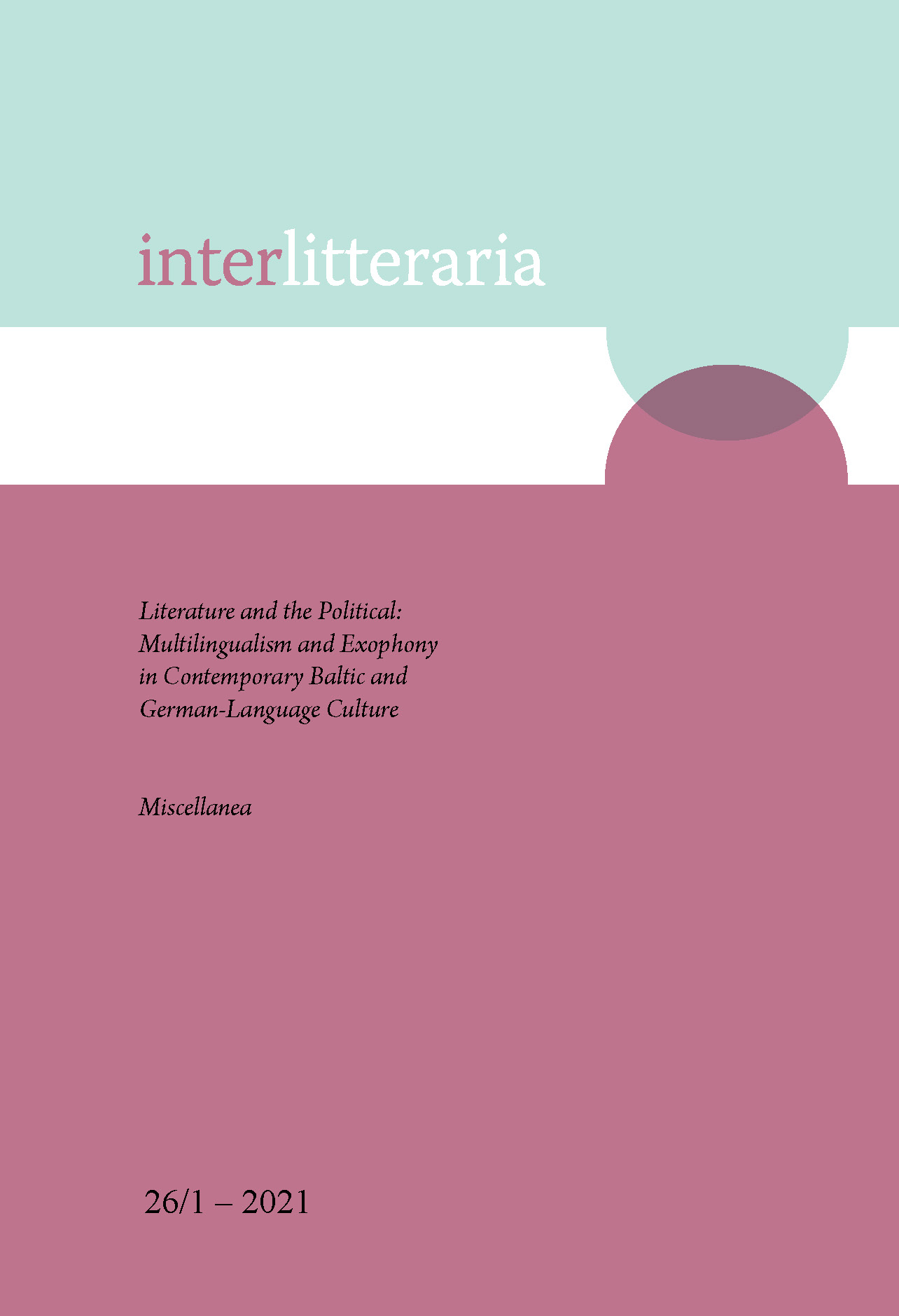Das internationale Autorenliedfestival „Lehesaju Muusika“ in Tartu als spezifische Form der Kulturvermittlung und Analyseobjekt für Mehrsprachigkeitsforschung
DOI:
https://doi.org/10.12697/IL.2021.26.1.15Keywords:
multilingualism, code-switching, discourse, “author song”, microsociolinguisticsAbstract
The Lehesaju Muusika International Music and Poetry Festival in Tartu as a Specific Form of Cultural Mediation and Object of Analysis for Research on Multilingualism. The paper focuses on the multilingual discourse of the Lehesaju Muusika international music and poetry festival, which takes place annually in Tartu, Estonia. Being an international cultural event organised by ethnic minorities, Lehesaju Muusika represents a unique source of empirical data for research on multilingualism. The festival attracts songwriters and performers of the so-called ‘author song’ or ‘bard song’ not only from Estonia, but also from all over the world. The key feature of this genre is the dominance of the text over the music.
The spatial organisation of a concert hall represents a specific power constellation within a microsocial structure. Performing artists have the power to decide in which language they perform and address the multilingual audience, while the audience itself has an indirect effect on this decision. The artist’s dialogue with the audience represents a peculiar discursive entity within the discourse of the festival. Code-switching appears to be one of the inherent characteristics of this discursive entity.
The present paper summarises some key features of international music and poetry festivals as multilingual cultural events, focusing on the discourse of the Lehesaju Muusika festival. It offers a brief analysis of the audience’s language profile based on the results of a microsociological case study carried out during the latest festival, in 2019. To illustrate the complexity of the multilingual communication during the festival, three situations of code-switching during the performance of an Estonian native speaker in front of the multilingual audience are described and analysed.
Downloads
Downloads
Published
Issue
Section
License
The contents of Interlitteraria are published under CC BY-NC-ND licence.


